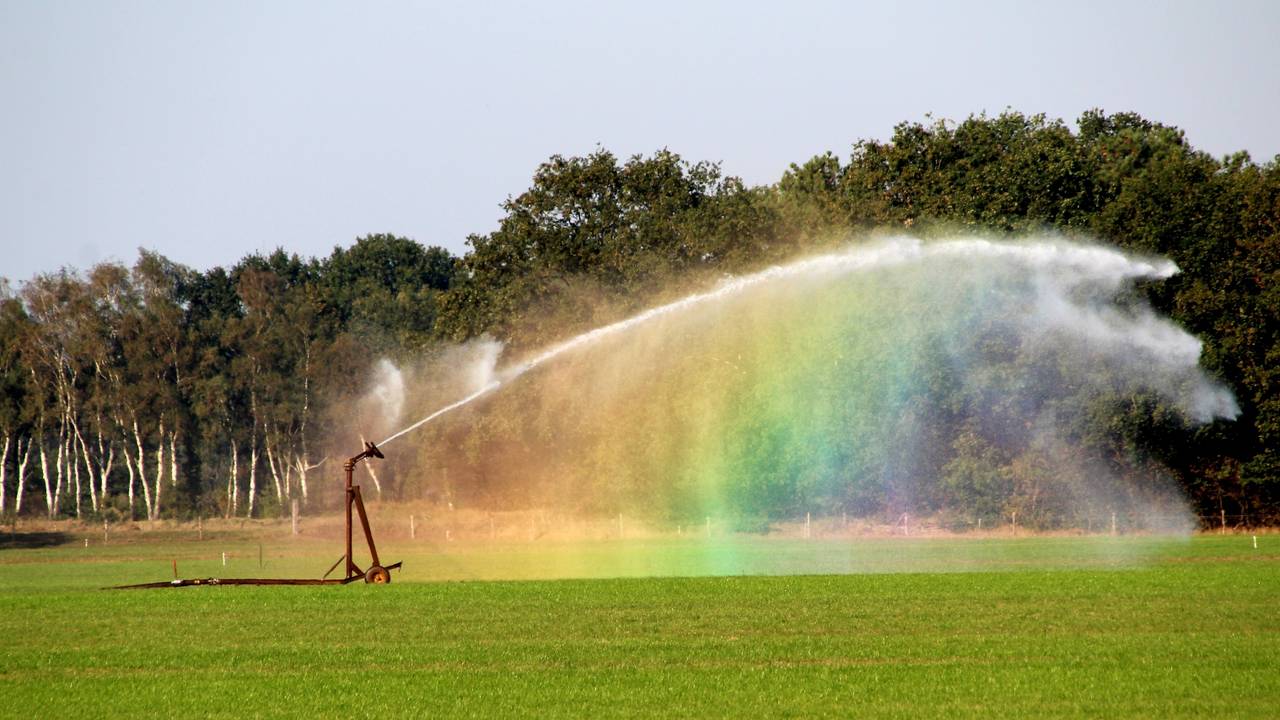Farmers will soon need a permit to irrigate their land in the Peel. The provinces of Brabant and Limburg announced this on Wednesday morning. Farmers currently do not need a permit for irrigating. Together with the water boards, the provinces are working on a transition period of two years, so that farmers have time to adapt to the new circumstances.
In recent years, farmers in the Peelvenen had been granted an exemption, so that they can irrigate without a permit. The Council of State decided in 2021 that this exemption was not possible at all, on the basis of legislation concerning Natura 2000 areas. Provinces have the task of protecting flora and fauna in Natura 2000 areas.
Dilemma
Both provinces are in the Peelvenen with a difficult dilemma. Desiccation due to climate change and the intensive use of groundwater for various applications have led to an untenable situation for the Peelvenen. The special nature in this Natura 2000 area is increasingly being damaged. In dry periods, many farmers in the area with what they now grow are dependent on irrigating their crops. Groundwater supplies will continue to decline as a result, with adverse consequences for protected nature and agriculture itself.
“In Brabant, we want to bring together major tasks in rural areas: nature conservation, dehydration approach and offering perspectives for agriculture,” says Hagar Roijackers, deputy for Water, Nature and Area-oriented approach of the province of Brabant. “This creates dilemmas: what space is there for which functions? The judge’s ruling on irrigation in the Peelvenen now asks us to take nature conservation as the primary point of departure.”
Agriculture must fit in with nature
Elies Lemkes-Straver, Deputy for Agriculture, Food, Soil and Broad Prosperity, responds to this. “But we also understand the interests of farmers. Together with the authorities involved and with the environment, we are going to investigate how we can achieve a groundwater balance and area protection that maintains perspective for an agriculture that is appropriately close to nature.”
The provinces understand that this decision has serious consequences for farmers in the area. That is why the provinces and water boards are working together to flesh out a transition period of two years. During this period, agricultural entrepreneurs can prepare for a business operation that is less or not dependent on irrigation and that cooperates with the natural water and soil system.
Walk-in meeting
During the transition period, irrigation is possible under certain conditions, but there are limits. When groundwater levels drop too far and the vulnerable status of the Peelvenen threatens to deteriorate, restrictions are imposed on irrigation from groundwater. The Peelvenen management plan draft decision will be available for inspection for six weeks from 25 May. A walk-in meeting will be organized in the area where interested parties can go with questions.
ALSO READ: It’s way too dry in the Peel and the province really wants to do something about it
–


